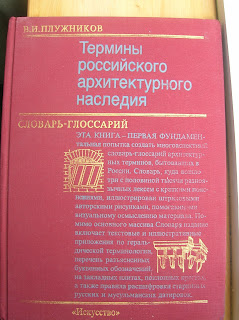Our hot water is off for the next two weeks (a scheduled summer occurence, if you can believe it), so the other day I bought a big metal
таз (taz, "basin") to fill with hot water for bathing.
My son was very approving - "I like that
унитаз (oo-nee-TAZ, "toilet bowl") you bought!"
After I set him straight about the big difference between taz and unitaz, I started digging around to find out where the word came from. My usual first source (who conveniently sits across the table from me at breakfast) suggested that
унитаз is short for универсальный таз (all-purpose basin). I knew - no, I had to believe - that he was wrong.
And he was!
I soon uncovered a very entertaining article on the
invention of the flush toilet. The article is attributed to
Twyford Bathrooms, but it isn't posted on the company's site. Twyford's site does, however, confirm that Thomas Twyford invented the "unitas" in 1883. The prefix uni- was chosen because it was the first one-piece toilet. What about -tas? I guess that was a prudent euphemism. The OED has entries for the word "tass" (meaning a cup or small goblet) dating back to the 15th century.
As the artice concludes, "The Unitas was shipped into Russia and the name UNITAS became the Russian word for WC!"
And how convenient that the trade name dovetailed so nicely with a Russian word that made the shape (if not the purpose) of the new product very clear! That's all I have to say about
унитаз.
Таз, by the way, came into Russian and lots of other languages from Persian via Turkish. The OED says that the immediate ancestor of tass in English is, of course,
tasse in French, but it also ultimately traces the word back to Arabic and Persian, where it meant cup or goblet.


